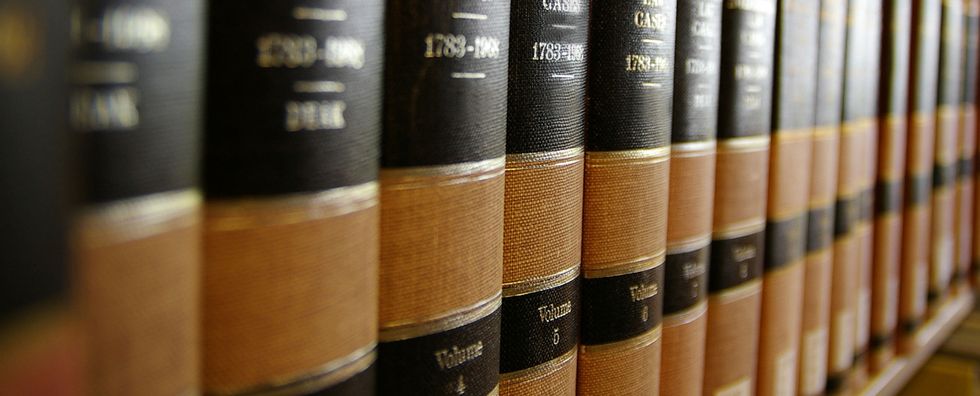As one who takes a great interest in, and aspiration to practice, law, there are few pieces of literature that engage with the spirit of law as Sir Thomas More's Utopia. Far be it from me to assume that this subject is appealing to many, the implications of both the letter and the spirit of law are great for all who live under a codified legal system. Specifically, More’s description of Utopia’s legal system is a clear juxtaposition to sixteenth century common law, from which our current legal system is derived.
Compared to sixteenth-century English law, the Utopian system appears to put such a system to shame. The two predominant differences, namely pro se (literally "on behalf of themselves") representation and greater readability assert Utopian law as a paragon of absolute truth and as a system devoid of unnecessary legal wordplay. More’s criticism for facets of Western legal systems are pointed: “As for lawyers, a class of men whose trade it is to manipulate cases and multiply quibbles, they exclude them entirely.” Utopia, in contrast to the nations it associates with, eschews these lawyers. These individuals do nothing to reduce the complexity of law. Rather, their actions exploit the myriad laws in existence to win a favorable finding for their clients, irrespective of the truth. Utopia rejects this notion. Instead, each man is given a platform to “…plead his own case, and to say the same thing to the judge that he would tell his lawyer.” More’s defense of pro se representation is a logical one. If all parties were to testify for themselves, truths would be more easily seen, as would attempts to subvert the whole truth with scripted narratives. When the parties in a case hide behind manipulative silver tongues in the form of attorneys, the discernment of truth becomes a long and arduous process for the court. Occam's razor seemingly applies here: the simpler the process is, the better.
Along these lines, a system wherein peoples’ interaction with law is simpler requires a simpler rule of law. Such a statement can be reasoned logically. In the case of Utopia, there are few laws. The laws on the books are clearly explained for the benefit of all. As a result, laymen can understand and practice the word of law in Utopia with the same ease that lawyers can navigate Western law. Because of this, there is no need for lawyers to exist in Utopia. Not only does More’s vision condemn the practices of the lawyer class in Western law, but his simplification of the law codes themselves gives rise to a society where all can easily abide by and argue the word of law.
While the world espoused by More is indeed idealistic, one can’t help but see the merits of such a law system. As denizens who live under common law, we may just find ourselves seeking such a system in the future. I know I won’t be however, I don’t want to put myself out of business.







































